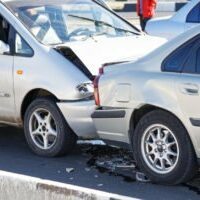Who Is at Fault in a Car Accident?

Who is at fault in a car accident? When it comes to auto accidents and car insurance, states are either considered no-fault or fault-based. New Hampshire is considered a fault-based or tort state when it comes to car accident claims. What does that mean, exactly?
Well, a determination is made to establish which party caused, was at fault for, or to blame for the accident. This party, then, is held liable.
If you’ve been in a recent car accident and sustained serious injuries, a personal injury attorney at the Law Office of Manning Zimmerman & Oliveira PLLC can help you recover the full amount of damages that you are owed. In this article, we’ll discuss determining fault, filing claims with insurance companies, and what that process is going to look like.
Seeking Compensation in a New Hampshire Auto Accident
In no-fault states, drivers turn to their own insurance companies when there is an accident. This insurance pays out regardless of who is at fault. In no-fault states, you have three options. Those are:
- File a claim with your own insurance company
- File a claim against another driver’s insurance company
- Sue the driver directly in court
Negligence: Determining Who Is at Fault
For those who elect to file claims against the other driver’s insurance or sue them in court, the process will involve establishing that the other party’s negligence was responsible for the accident. Negligence has a three-factor test. This is:
- Does the defendant owe a duty of care to the plaintiff?
- Did the defendant breach that duty of care?
- Did the plaintiff’s injuries result from that breach?
When the answer to each of those questions is “yes” then the plaintiff has established that the defendant was negligent and that the defendant owes the plaintiff for damages.
What Determines If a Driver Is Negligent?
This is a very broad question that depends entirely on the situation. For instance, in accidents in which one driver rear-ends another driver, the court will almost always find in favor of the driver who was rear-ended. On the other hand, there may be mitigating factors that reduce that driver’s negligence. For instance, what if the driver who was rear-ended did not have functioning brake lights? This could very well have contributed to the accident.
Generally speaking, there is a clear reason why the accident happened. One party violated the rules of traffic and this resulted in a car accident. One party may have been driving intoxicated or was distracted while they were driving. They may have been paying more attention to their cell phone or infotainment system than on the road. Those folks are obviously negligent when they cause a car accident. Other accidents, however, are not so black and white.
What Happens If Both Parties Are Partially at Fault?
In some accidents, both drivers are assigned some of the blame. This is known as comparative fault or comparative negligence. So long as you are not more than 50% at-fault for an accident, you can pursue a lawsuit against the at-fault driver. However, you are only entitled to collect damages on their “share” of the blame.
For instance, let’s say you win a lawsuit and you have $20,000 in damages. If it turns out that 25% of the blame is yours for the accident, the at-fault driver will only be required to pay 75% of your damages, or $15,000.
Insurance Company’s Role
When you file a claim against a negligent driver’s auto insurance, the insurance company wants you to be at fault for the accident. This reduces their liability. In cases where you’ve sustained serious injuries, they will be going over your old medical reports and attempting to determine what was caused by the accident and what might have been a pre-existing injury. They are going to be doing everything in their power to ensure that they have to pay you as little as possible. This could mean partially blaming you for the accident to reduce their liability or it could mean saying that your injuries were caused in another incident.
Speak to a New Hampshire Traffic Accident Attorney
The more serious your injuries are, the higher the stakes are when pursuing a lawsuit or an insurance settlement. You are entitled to collect on missed time from work, medical expenses, pain and suffering, and a host of other things as well. If you’ve been in a serious car accident, you may be wondering “who is at fault in a car accident, and who will have to pay up?”
Contact the personal injury attorneys at the Law Office of Manning Zimmerman & Oliveira PLLC. We have successfully resolved numerous cases favorably for our clients.

